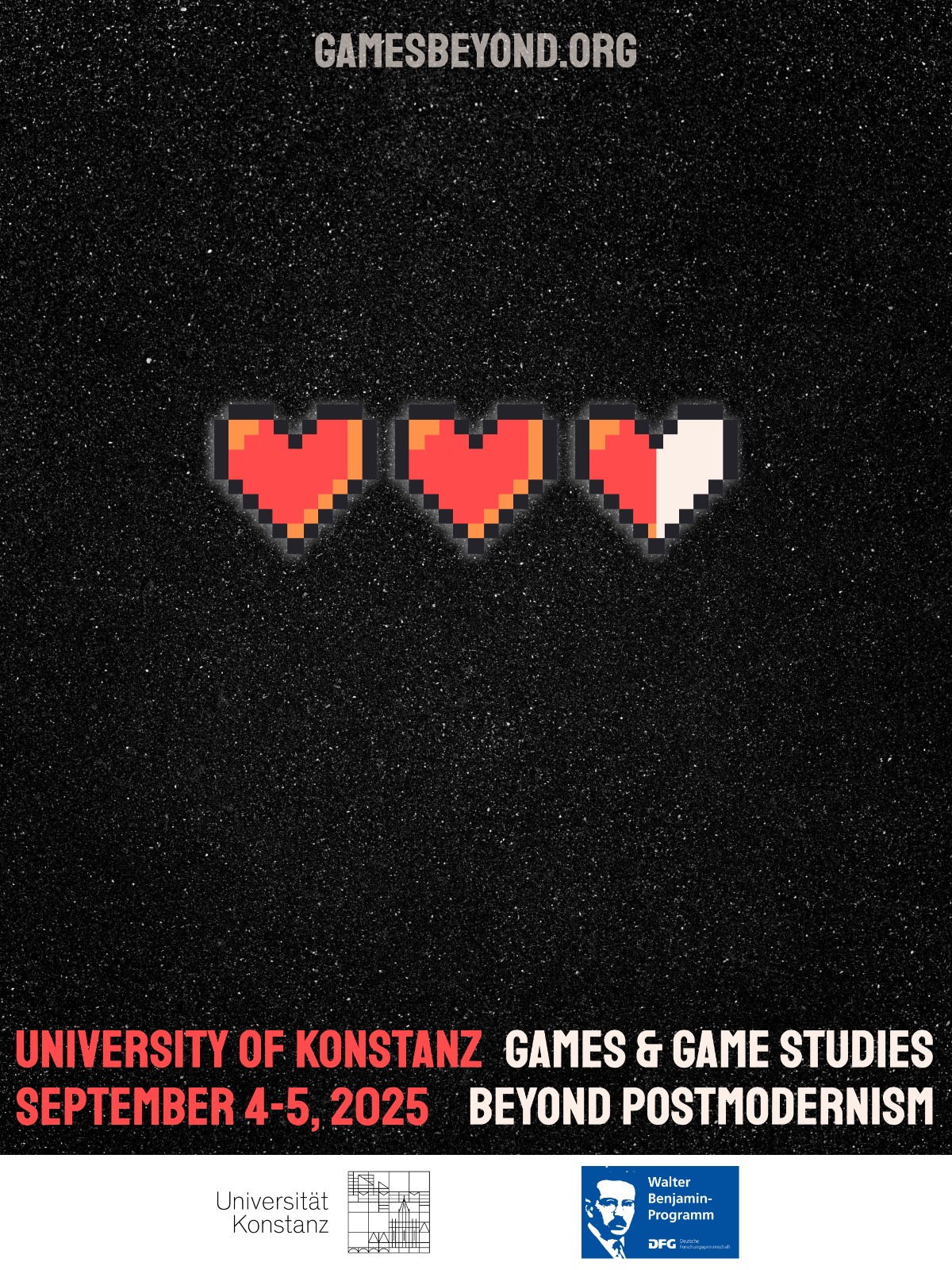The demise of postmodernism as a dominant cultural mood is no longer the sensational news it once was when Linda Hutcheon, along with other cultural theorists, observed in the early 2000s that this defining buzzword of the twentieth century may have become “a thing of the past” (Hutcheon 2002, 5). Numerous intersecting -isms have since been proposed to describe the sweeping yet elusive transformation of cultural logic since the 1980s: Nicolas Bourriaud’s altermodernism (2005) presents this new culture as artists’ nomadic response to the processes of globalisation; Alan Kirby’s pseudomodernism (2006) and later digimodernism (2009) frame it as a shift towards a technology-driven culture that “fetishises the recipient” (Kirby 2006) rather than the author; Timotheus Vermeulen and Robin van den Akker’s metamodernism (2010) is meant to conceptualise it as a turn towards an aesthetic oscillating between the modern and the postmodern: sincerity, empathy, hope, naïveté on the one hand, and postmodern artifice, apathy, melancholy, knowingness on the other.
A wide variety of cultural texts have been brought into the conversation about the possible waning of the postmodern sentiment and its replacement with variously defined post-postmodernism(s), including the literature of David Foster Wallace and Zadie Smith, the architecture of David Chipperfield and Peter Zumthor, the music of Janelle Monáe and Future Islands, the cinema of Wes Anderson and “yes, David Lynch” (Vermeulen and van den Akker 2010). Yet one cultural medium remains curiously underexplored in these debates about the successor(s) to the postmodern paradigm: games. As Steven Conway aptly identified, game studies have long treated games – especially digital ones – as “innately postmodern” (Conway 2024). Nevertheless, the growing interest in rethinking games and game studies from a perspective that moves beyond postmodernism, especially in the context of Vermeulen and van den Akker’s metamodernism, reflects the emerging recognition that contemporary games may no longer fit within the now deeply institutionalised postmodern paradigm (Hutcheon 2002, 5). Games such as The Last of Us (2013), with its drive towards sincerity; Death Stranding (2019), with its empathy-focused gameplay; and Alan Wake 2 (2023), with its reconstructive approach to ludic storytelling, are among the key examples scholars have brought into the conversation about a post-postmodern shift in games and game studies (Conway 2024, Radchenko 2020, Radchenko 2023).
This conference seeks to explore games and game studies in relation to contemporary culture’s transition beyond postmodernism. We invite speakers to question, in particular, how the presently dominant cultural sensibility structures the ways in which games (both digital and non-digital) are created, played, and analysed. We welcome contributions from a range of disciplines and backgrounds, including game studies, media studies, literary studies, interart studies, cultural studies, philosophy, aesthetics, sociology, and beyond.
Possible topics include, but are not limited to:
– Games as contemporary cultural texts
– Games and the use of post-postmodern devices/techniques, including practice-based research
– Games as sites of cultural transition from postmodernism to post-postmodernism(s)
– Games as the vanguard of emerging aesthetic trends not only beyond postmodernism, but also beyond its successors
– Game studies and the limitations of the postmodern critique
– Game studies and new methodological and theoretical approaches to games within a post-postmodern context
– Post-postmodernism and gamification of culture
– Ecocritical, posthuman, and more-than-human approaches to games; games and the discourses of planetarity and globalisation
– Ethical turn in games: relationality, care, and representations of diversity and difference
– Post-postmodern uses of self-referentiality, self-reflexivity, meta-textuality, meta-communication
– Games as critiques of neoliberalism, post-truth, and late-stage capitalism
– Games as part of the landscape of contemporary culture: affinities with post-postmodern literature, cinema, music, art, and other cultural expressions
– Post-postmodern playfulness in literature, cinema, and other media
If you would like to present a paper at the conference, please submit an abstract of no more than 300 words (excluding bibliography) and a short biographical note by 1 June 2025 to gamesbeyond@uni-konstanz.de.
You will be notified of the acceptance of your abstract by 10 June 2025.
This conference is part of the project The Biophilic (Eco-)Poetics of Video Games (Project No. 522053894) funded by the German Research Foundation (DFG) and conducted at the University of Konstanz.
Organising team: Nataliya Gorbina, Eszter Vass, Michael Conrad, Timo Müller, with the support of the GameLab.
***
Bibliography
Bourriaud, Nicolas. “Keynote Speech to the 2005 Art Association of Australia & New Zealand Conference.” AAANZ, 2005. Internet Archive, 23 July 2008. https://web.archive.org/web/20080723130718/http:/www.artgallery.nsw.gov.au/aaanz05/abstracts/nicolas_bourriaud.
Conway, Steven. “Loops, Spirals, Kennings: Metamodernism in Alan Wake 2.” Game Studies, vol. 24, no. 4, 2024. https://gamestudies.org/2404/articles/conway.
Hutcheon, Linda. “Postmodern Afterthoughts.” Wascana Review of Contemporary Poetry and Short Fiction, vol. 37, no. 1, 2002, pp. 5–12.
Kirby, Alan. Digimodernism: How New Technologies Dismantle the Postmodern and Reconfigure Our Culture. Continuum, 2009.
Kirby, Alan. “The Death of Postmodernism and Beyond.” Philosophy Now, no. 58, 2006. https://philosophynow.org/issues/58/The_Death_of_Postmodernism_And_Beyond.
Radchenko, Simon. “Metamodern Gaming: Literary Analysis of The Last of Us.” Interlitteraria, vol. 25, no. 1, 2020, pp. 246–259. https://doi.org/10.12697/IL.2020.25.1.20.
Radchenko, Simon. “Metamodern Nature of Hideo Kojima’s Death Stranding Synopsis and Gameplay.” Games and Culture, vol. 20, no. 1, 2023, pp. 20–37. https://doi.org/10.1177/15554120231187794.
Vermeulen, Timotheus, and Robin van den Akker. “Notes on Metamodernism.” Journal of Aesthetics and Culture, vol. 2, no. 1, 2010. https://doi.org/10.3402/jac.v2i0.5677.
